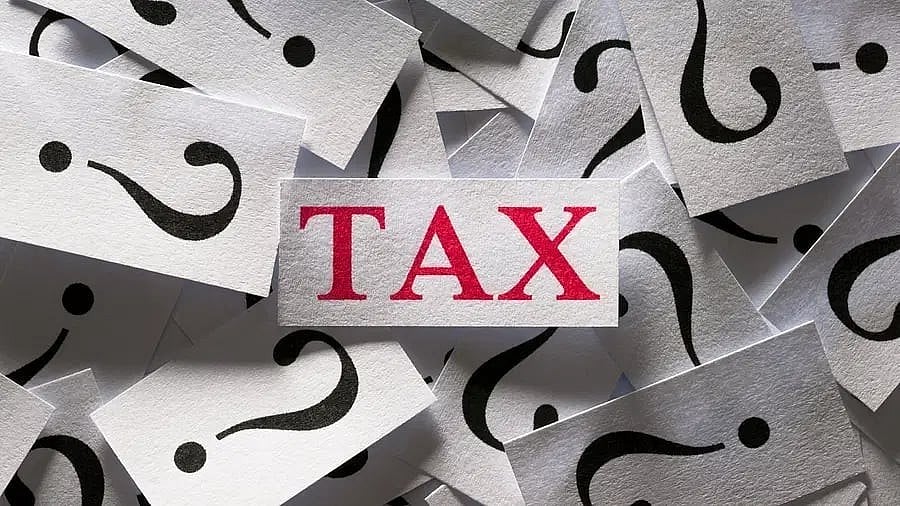
Representative image with the word 'tax'.
Credit: iStock Photo
Recently, the Infosys founders were in the news for opting out of the company’s buyback offers. Infosys has proposed its biggest-ever buyback offer of up to 10 crore equity shares — Rs 1,800 per equity share as against the market closing price of Rs 1,482.30 on October 31. The record date for the buyback is expected to be on or around November 14, 2025.
In spite of an assured gain of Rs 318 per equity share, the founders, collectively holding 13.05% equity, chose not to participate in the said exercise. What would be the reason? Whether the changed buyback tax regime forced them back? Whether resident shareholders exercise the option or follow suit? Whether non-resident shareholders have an edge over their resident counterparts? Let us have a look at these issues briefly.
What is the buyback of shares?
It is an act of purchasing its own shares by a company from the existing shareholders. A company is allowed to use its free reserves, securities premium, and the proceeds of issue of any shares or other specified securities to buy back its shares. The benefits available for a company are to improve the earnings per share, improve return on capital and net worth, and a positive market perception to force further growth in share price, among others. For shareholders opting in, they can expect an easy exit with a higher premium compared to market offers, subject to applicable taxes. Those who retain can expect long-term wealth creation due to a change in shareholding pattern, but over a period of time.
Old buyback tax regime
Until September 30, 2024, the domestic companies that go for the buyback exercises were liable to pay taxes at 20% with applicable surcharge and cess on consideration. At the same time, shareholders who exercised the option were exempted from taxes. In other words, any consideration received thereon was fully exempted. In fact, tax on the distributed income of a domestic company from buyback of shares was introduced by the Finance Act, 2013, in line with the then scheme of dividend distribution tax. In 2020, the dividend distribution tax was done away with.
New buyback tax regime
Due to representations received on tax payouts on buybacks in the hands of the recipients, to treat both buyback and dividend payouts in the same manner, Finance Minister Nirmala Sitharaman, in her Union Budget 2024-25, tabled on July 23, 2024, proposed certain groundbreaking measures to widen the tax base. Changes to buyback shares, existing tax treatment were one of them. Accordingly, the income from buyback of shares by companies shall be chargeable in the hands of the recipient investor as ‘dividend income’ and shall be chargeable to tax at applicable tax rates. Further, the buyback consideration paid to a resident shareholder shall be subject to TDS at 10%.
For shareholders, the associated cost incurred on purchasing such shares shall be allowed as a capital loss and adjusted against other capital gains. The full consideration received by such shareholder for computation of gain shall be deemed ‘nil’. Accordingly, the cost of acquisition of such shares would generate a capital loss in the hands of the shareholder. No expense is allowed as a deduction in the hands of shareholders. The above changes came into force on October 1, 2024.
Effectively, buyback offers by companies on or after October 1, 2024, shall be governed by the new tax regime.
Advantage for non-residents
Due to India’s tax treaties with other countries, non-resident shareholders invested in Indian companies are likely to benefit from the new buyback tax regime. Tax treaties have extended lower tax rates on their dividend income received from India. For instance, India-UK or India-Mauritius treaties provide tax benefits on mutually agreed terms. Accordingly, the UK or Mauritius-based shareholders’ dividend income is subject to lowered tax as low as 5% to 15%.
To opt in or hold, or sell
Since the founders were not parting with their holdings, the other investors are in a dilemma whether to exercise the option or not. For instance, if an investor bought a share at Rs 1,000 long back and opts for the buyback offer at Rs 1,800, the entire amount will be considered as income and attract applicable taxes. Due to a change in tax regime, the buyback is largely favourable to small investors who fall under low tax brackets. Given Infosys’ debt-free, strong cash flows, dividends, and sectoral leadership, others may retain their holdings or explore open market offers.
(The writer is Founder & CEO, Shree Tax Chambers)